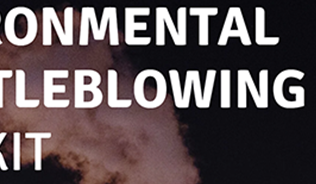What inspired you to pursue an environmental career?
I’ve always enjoyed geography and science, but it wasn’t until university that I truly saw a career path forming. During a careers module, an environmental engineer spoke about her typical day, and I could immediately picture myself in her role. The way she managed her time, planned her projects, and applied transferable skills from university really resonated with me. It felt like a perfect fit for my own interests and strengths. To further explore this path, I completed a placement year with a remediation contractor as an environmental engineer, which confirmed my passion for the field and opened doors for more opportunities. That hands-on experience eventually led me to where I am today as an environmental consultant.
What is your educational and career background?
My educational background started with A-levels in geography, maths, German, and biology, which fuelled my interest in environmental issues and led me to pursue a degree in Environmental Sciences at the University of Leeds. During my time at university, I had the opportunity to complete a placement year with a remediation contractor, where I gained hands-on experience working on contaminated land projects. My dissertation focused on the remediation of hexavalent chromium in contaminated soils from a real-life site I worked on during that placement. I was able to replicate the chemical treatment used on-site within the university labs, which gave me invaluable insights into practical remediation techniques and the challenges involved. This experience solidified my career path and deepened my understanding of environmental consultancy.
What is your current job role and what activities do you do?
As a senior environmental consultant, my role varies depending on whether I'm in the office or out on site. On site, my activities range from soil and water sampling, borehole or trial pit logging, gas and water monitoring, to verification sampling and site supervision. I also conduct site walkovers for desk studies, ensuring I have a clear understanding of the land before advising on future work. Health and safety is an important part of any site works and ensuring the documentation is in place beforehand is also part of the role.
In the office, where I spend most of my time, I focus on report writing, including Phase 1 and Phase 2 reports, remediation strategies, and verification reports. I manage large data sets using Excel, an activity I particularly enjoy, and also use software like QGIS to analyse spatial data - building upon skills I first learned at university. This combination of data analysis tools allows me to effectively interpret complex site information and present it in a clear way for clients. Additionally, I prepare proposals and create storyboards for our projects.
Beyond project work, I read up on the latest industry guidance, manage the company's social media, mentor newer employees, and attend training and CPD events to stay up-to-date. The variety between fieldwork and office-based tasks keeps things dynamic and rewarding. No two days are the same. It allows me to apply both technical and analytical skills while staying connected with clients and colleagues.
What is your favourite part of your job?
One of my favourite aspects of the job is the diversity of the sites we work on and the complexity of the contaminants we encounter. No two sites are ever the same, which keeps the work engaging and challenging. Each site presents its own set of environmental and technical issues, and I enjoy the process of developing a conceptual site model to really understand the intricacies of the site. It’s that deeper understanding that allows us to find effective solutions and create strategies that are tailored to each unique situation. The constant variety and problem solving are what keep me passionate about the work I do.
How does your career relate to sustainability?
As an environmental consultant, sustainability is at the core of everything we do. My role involves assessing the environmental impact of contaminated sites and developing remediation strategies that help restore and protect human health, controlled waters and the environment. Particularly for brownfield land, this ensures that land can be safely used for future development, reducing the need to build on undeveloped land and preserving natural habitats. Additionally, the work I do focuses on managing waste, water, and soil, in ways that minimise long-term environmental damage.
Why do you think a young person should pursue a career in land condition?
A career in land condition offers a unique opportunity to make a tangible difference in the environment and contribute to sustainable development. It’s an exciting field that combines scientific knowledge, problem-solving, and real-world impact. For young people, it’s a chance to work on diverse projects that address critical environmental issues, from cleaning up contaminated land to protecting natural resources. The variety of work - whether it’s site investigations, remediation planning, or engaging with stakeholders - means you’re constantly learning and evolving. Plus, with the growing focus on sustainability and the need for more land to be repurposed for development, there’s increasing demand for professionals in this sector. It’s a career where you can directly contribute to the protection of human health and the environment, which is incredibly rewarding.





